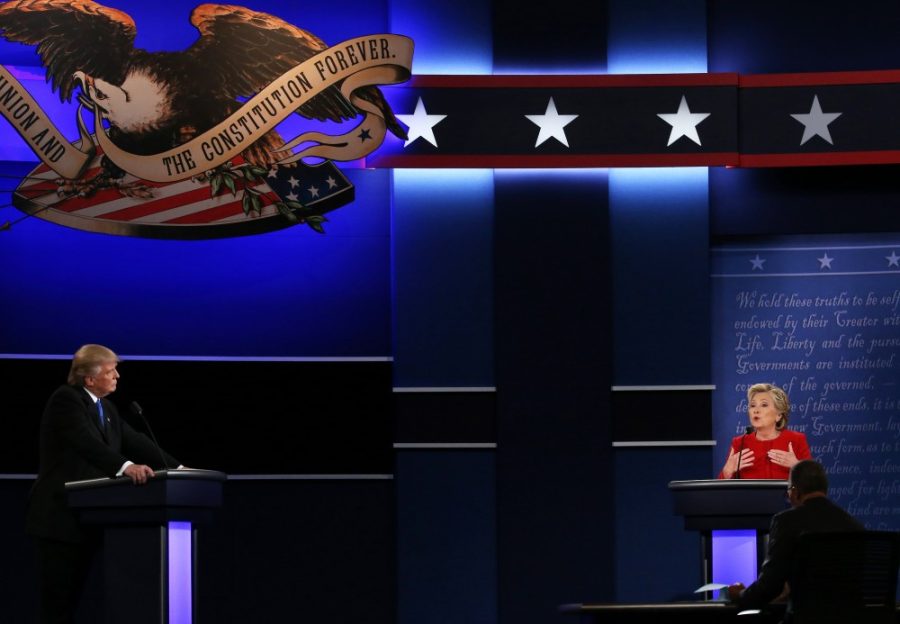The first presidential debate between Hillary Clinton and Donald Trump was the most watched presidential debate in this country’s history.
The two candidates will face off in their second of three debates, Sunday, Oct. 9. The debate will air at 6 p.m. MST from Washington University in St. Louis, Missouri on all major news networks.
The debate will last approximately 90 minutes and will be conducted in a town hall format. Half of the debate questions will be asked by uncommitted voters from the audience who were selected by the Gallup polling organization.
Each candidate will have two minutes to respond to each question. Moderators Martha Raddatz and Anderson Cooper will then have one minute to further the discussion of the question.
Raddatz is the chief global affairs correspondent and co-anchor of “This Week” at ABC, while Cooper is an acclaimed news anchor for CNN.
Raddatz and Cooper will ask the candidates the remaining half of the debate questions. Their questions will be drawn from topics of public interest as reflected in social media and other sources, as laid out by the Commission on Presidential Debates.
Libertarian candidate Gary Johnson and Green Party candidate Jill Stein will once again not be participating in the debate. Both nominees failed to meet the 15 percent polling minimum in five national polls to be eligible for participation.
Johnson has one more opportunity to qualify for a debate. If he did, this would accomplish one of Johnson’s main campaign goals, said Lauren McCarthy, a regional director for the Johnson campaign.
The campaign also hopes to receive at least five percent of the national vote in order to automatically place Libertarians on the ballot in 2020, according to McCarthy.
Jane Calderwood, the director of congressional programs at the National Institute for Civil Discourse, said the first presidential debate was one of the most uncivil in recent history.
The NICD was created in 2011 following the tragic shooting of former Congresswoman Gabrielle Giffords’ at a Congress on your Corner public meeting which claimed the lives of six individuals. The institute, based at the UA, attempts to promote healthy and civil political discourse.
The institute conducted a survey on the night of the presidential debate and found that debate watchers viewed Clinton’s performance as more civil compared to that of Trump, according to Calderwood.
RELATED: Social media crucial in presidential election
The survey found 78 percent of respondents believed Trump failed to respond to the questions posed during the debate. Only 31 percent felt this way about Clinton.
Less than 50 percent of respondents felt Trump took responsibility for his past errors. A much more significant portion felt Clinton did.
Calderwood said she’s cautiously hopeful that the second presidential debate will be a more civil affair.
She said debates should provide voters with an opportunity to hear the candidates policies on important issues.
The institute partnered with the University Center for Politics this election cycle to promote civility. The institute sent standards of civil discourse to the campaigns and debate moderators.
The institute plans to conduct another survey after the second presidential debate.
The NICD feels it is very important that the public watches the presidential debates, learns about the candidates and decides for themselves who they will cast their vote for.
The last day to register to vote in Arizona for November’s election is Oct. 10, or the day after the second presidential debate.
The last day for UA students to request a mail in ballot is Oct. 28.
Calderwood said whoever wins or loses, the American people need to go out and vote and express their views to shape the country’s future.
Follow Randall Eck on Twitter.









